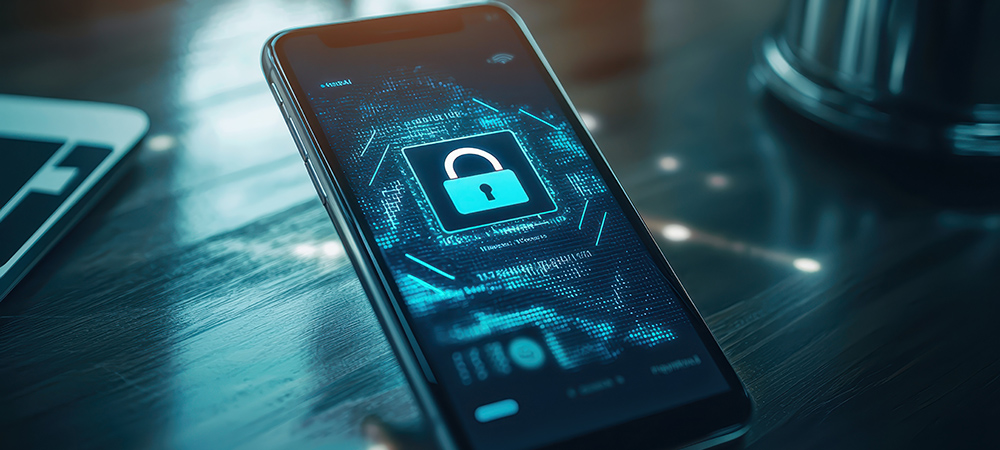Smartphones have become more than just gadgets—they’re little extensions of ourselves. They carry our secrets, our finances, our relationships. And in 2025, that makes mobile privacy not just important—it’s urgent. Because while these devices make life easier, they also make it easier for others to peek into our lives without us even realizing it. Let’s break down what’s happening, what you should be wary of, and how to fight back.

The mobile threat landscape is changing—fast
Think about it: your phone isn’t just a phone anymore. It’s your calendar, your wallet, your camera, even your key to work. That makes it a tempting target. Security researchers report that attacks on Android devices jumped nearly 30 % in the first half of 2025. And that’s just the tip of the iceberg. Many devices are running outdated software or unpatched systems, which is like leaving your front door wide open.
If you’ve been ignoring those update notifications, you’re not alone—but you could be inviting trouble in. It’s no longer a question of if you might get targeted—it’s when.
The biggest threats mobile users face today
1. Outdated devices and neglected updates
Many people hang onto phones far past their prime. And guess what? Those old devices aren’t just slow—they’re vulnerable. Hackers love them.
Quick tip: Always check your OS version and keep everything updated. If your phone isn’t getting updates anymore, it might be time to let it go.
2. Public Wi‑Fi traps
We all do it: grab that free airport Wi‑Fi, scroll social media, maybe check a bank account. But public networks are playgrounds for hackers. They can sneak in and watch your data in real time.
Quick tip: Use a trusted VPN and double-check that HTTPS is always on. Treat public Wi‑Fi like a street full of strangers—don’t trust it blindly.
3. Risky apps and sideloading
Sideloading apps, or downloading from unofficial sources, seems tempting, right? Especially for free stuff. But those apps often carry malware or spyware waiting to dig into your data.
Quick tip: Stick to official stores and pay attention to permissions. That game asking for your microphone access? Question it.
4. Phishing and social engineering getting smarter
Ever gotten a text from “your bank” that looked totally real? That’s no accident. Attackers now use AI to craft messages so convincing you might actually fall for them. Deepfake voices, zero-click malware—it’s a scary world.
Quick tip: Pause. Don’t click links impulsively. Two-factor authentication isn’t optional anymore—it’s your safety net.

5. Connected devices = bigger risks
Your phone controls more than apps. Smart watches, home devices, IoT gadgets—they all connect to it. And a single weak link can compromise everything.
Quick tip: Treat your phone like the central hub it is. Every device on your network should be secured. Don’t let one careless gadget ruin the whole ecosystem.
Signs your phone might be in trouble
- Weird battery drain or sudden data spikes
- Apps asking for unnecessary permissions
- Strange behavior on public networks
- SIM-swap alerts or unexpected logins
- Deepfake messages that feel “off”
Even small, subtle things matter. Pay attention. Your phone often signals trouble before disaster strikes.
How to protect yourself in 2025
- Encrypt your device fully—yes, it’s usually default, but double-check.
- Lock with strong passwords or biometrics.
- Use multi-factor authentication, preferably not SMS.
- Update everything—don’t ignore prompts.
- Review app permissions regularly. Delete the ones you don’t use.
- Avoid sensitive tasks on public Wi‑Fi; VPNs are lifesavers.
- Back up your data, but encrypt it.
- Be skeptical of unexpected links, messages, or calls.
- Treat your entire connected ecosystem as a single security concern.
Small habits. Big difference.
Why mobile privacy matters more than ever
Think about it: your phone knows your location, your spending habits, your chats, even your health data. A breach isn’t just an inconvenience—it can mean identity theft, financial loss, or reputational damage. And because phones are always with us, the risk is constant.
It’s not just about personal safety. Businesses, regulators, and even governments are paying attention. Phones are now front-line security devices. Neglect them, and you’re leaving yourself exposed.
Looking ahead: the privacy battle of 2025
Mobile threats aren’t slowing down—they’re evolving. AI will be used to both attack and defend, regulations will tighten, and hackers will keep finding new ways in. Privacy hygiene will become as routine as charging your phone. In 2025, the rule is simple: assume your phone is being watched—and act like it.

Final word
Your phone is small, but it holds everything that makes you…you. Treat it with care. Stay updated. Stay cautious. And remember: protecting your mobile privacy isn’t paranoia—it’s smart, practical, and essential. In 2025, the digital world won’t wait for you. You have to stay one step ahead.
For a deeper dive into mobile AI and security, check this article